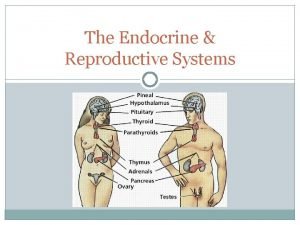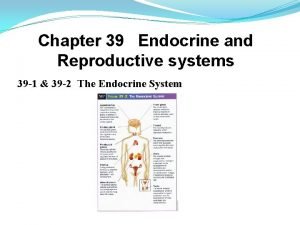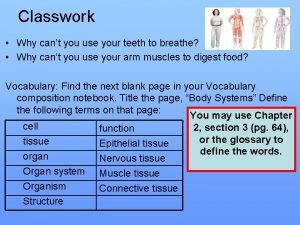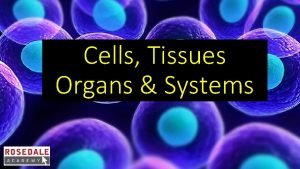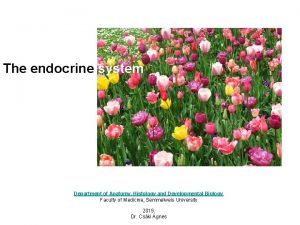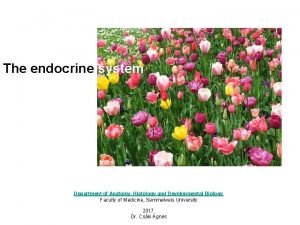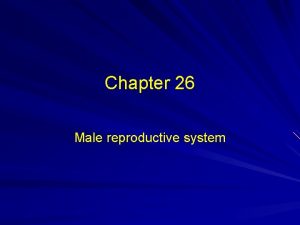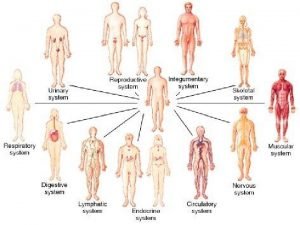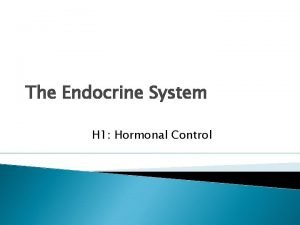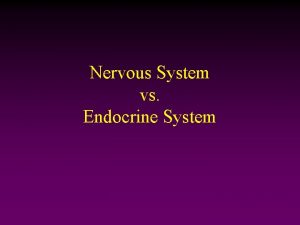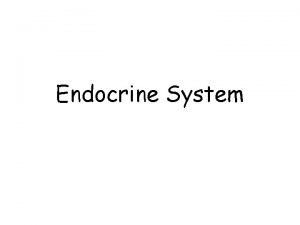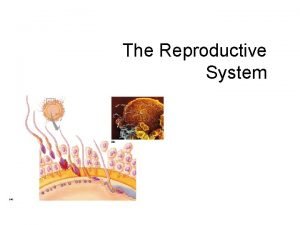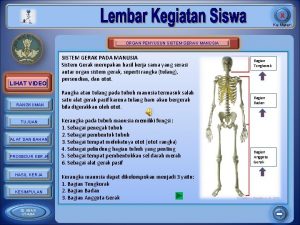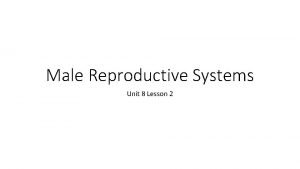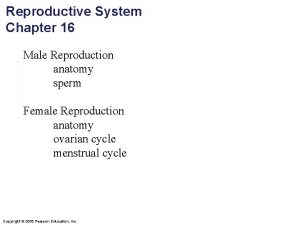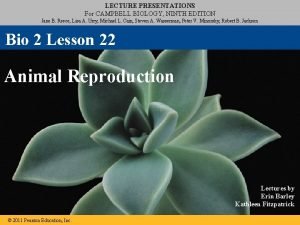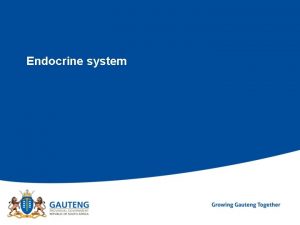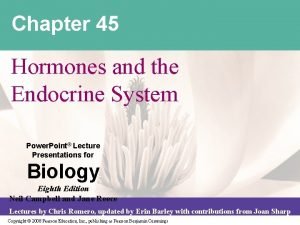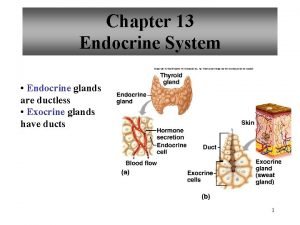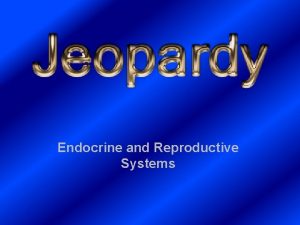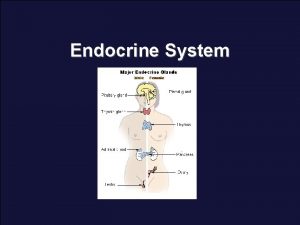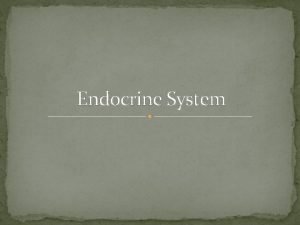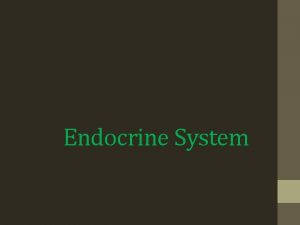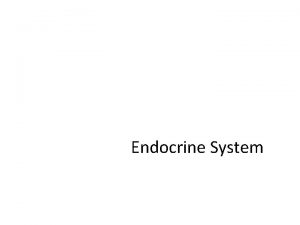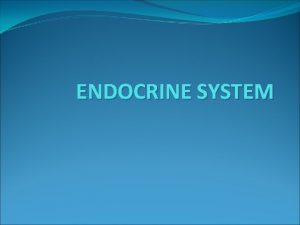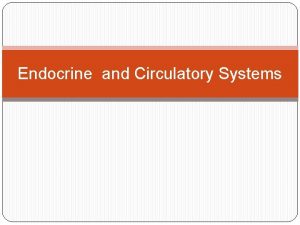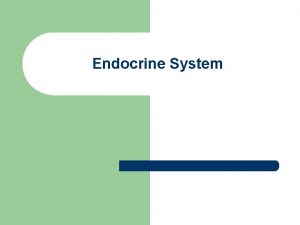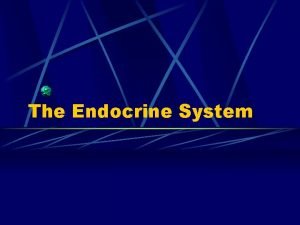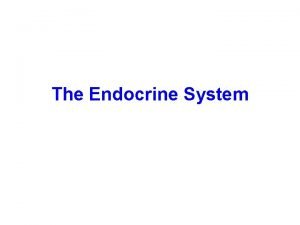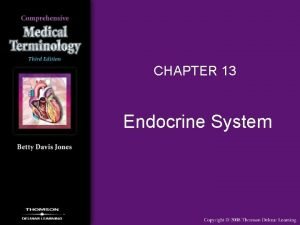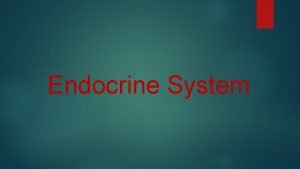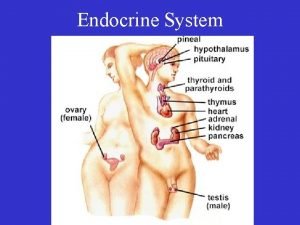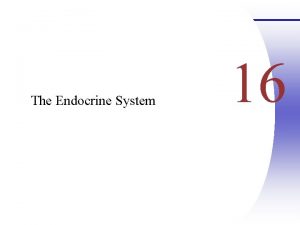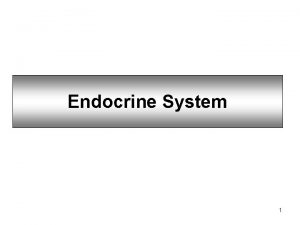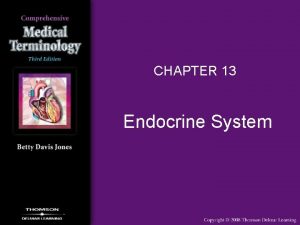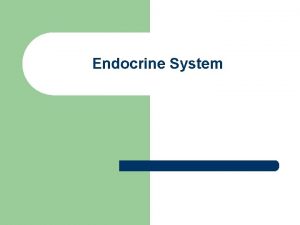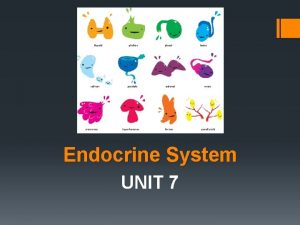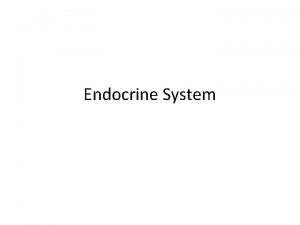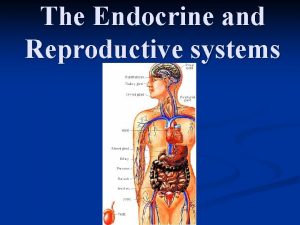Reproductive and Endocrine Systems reproductive system the organ


























- Slides: 26

Reproductive and Endocrine Systems

reproductive system • the organ system that enables humans and other animals to make more organisms like themselves

different The reproductive system is different from the other systems because it is made up of ____ organs in males and females. Meaning: Male reproductive organs and female reproductive organs are not the same. Do males and females have different digestive organs? Skeletal systems? Nervous systems?

sperm • male sex cells

eggs • female sex cells

fertilization • when the sperm and the egg join together; required for sexual reproduction to take place

testes (singular—testis or testicle) the main reproductive organs in males; where sperm is produced

hormone • a chemical made in one part of the body that affects the activities of cells in other parts of the body

blood endocrine • Hormones are carried through the body in the _____. • They are produced by the _____ system.

hormone • chemical messengers that control body functions such as growth, development, and metabolism

ovaries the main reproductive organs in females; where eggs are produced

zygote • a new cell formed when an egg cell is fertilized; how all multicellular organisms begin life

placenta a fluid filled organ through which materials are exchanged between the mother and developing offspring (the embryo is connected to the placenta by the umbilical cord)

• How does the fetus get oxygen and nutrients and get rid of wastes?





• Birth of a killer whale • Katina gave birth to her 4 th calf, Unna, on 12/27/96 at Sea. World Florida. • Baby killer whale trying to imitate mother

endocrine system • regulates mood, growth and development, tissue function, and metabolism, as well as sexual function and reproductive processes

gland • a group of cells that produces and secretes, or gives off, chemicals

insulin • a hormone which helps glucose enter the cells of your body

hypothalamus • a collection of specialized cells that is located in the lower central part of the brain; the primary link between the endocrine and nervous systems

pituitary gland • a gland in the brain which produces growth hormones and endorphins; the "master gland" because it makes hormones that control several other endocrine glands

metabolism • everything that goes on in your body to keep it alive and growing and supplied with energy (i. e. breathing, digesting food)

thyroid • a gland in the neck which produces hormones that control the rate at which cells burn fuels from food to produce energy
 Endocrine system and reproductive system
Endocrine system and reproductive system Chapter 39 endocrine and reproductive systems
Chapter 39 endocrine and reproductive systems Organ and organ system
Organ and organ system Cell tissue organ organ system organism
Cell tissue organ organ system organism Cells group together to form
Cells group together to form Endocrine histology
Endocrine histology 30 / 4
30 / 4 Pituitary and optic chiasm
Pituitary and optic chiasm Base of prostate gland
Base of prostate gland Human body systems images
Human body systems images Endocrine system and nervous system
Endocrine system and nervous system Endocrine system and nervous system
Endocrine system and nervous system The body's speedy electrochemical communication network
The body's speedy electrochemical communication network Lymphatic system vs endocrine system
Lymphatic system vs endocrine system General mechanism of hormone action
General mechanism of hormone action Similarities between male and female reproductive system
Similarities between male and female reproductive system Organ-organ penyusun sistem gerak manusia
Organ-organ penyusun sistem gerak manusia Organ organ pernafasan
Organ organ pernafasan Penyusun sistem saraf pusat adalah
Penyusun sistem saraf pusat adalah External anatomy of frog parts and function
External anatomy of frog parts and function Spermiogenesis
Spermiogenesis Where is semen stored
Where is semen stored Figure 16-1 is a sagittal view of the male reproductive
Figure 16-1 is a sagittal view of the male reproductive Glans penis
Glans penis Comparison of endocrine and nervous system
Comparison of endocrine and nervous system Oxication
Oxication Endocrine and nervous system comparison
Endocrine and nervous system comparison
